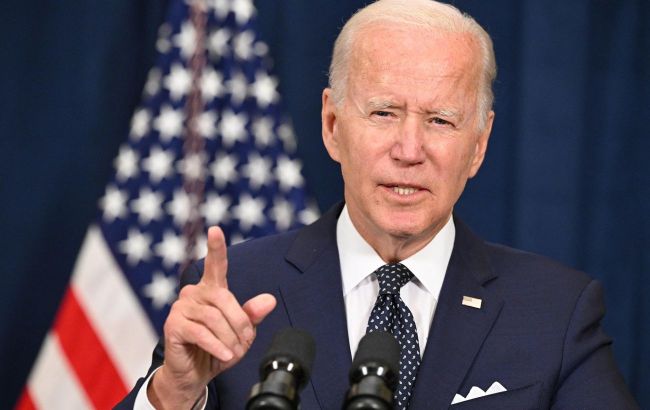Biden to strengthen financial sanctions against Russia's accomplices
 U.S. President Joe Biden (Getty Images)
U.S. President Joe Biden (Getty Images)
Today, U.S. President Joe Biden intends to strengthen sanctions against Russia. Secondary sanctions will allow for the prosecution of financial intermediaries in countries that help to circumvent sanctions, according to a senior Biden administration official.
"President Biden intends to sign a new executive order that strengthens U.S. sanctions authorities against Russia, with a focus on financial facilitators for Russia’s war," he says.
According to him, the Kremlin has spent a lot of time and resources directing its intelligence services to find ways to evade sanctions and export controls. Intermediaries and front companies were created, using financial intermediaries to circumvent restrictions and obtain critical components for the war. These include goods such as semiconductors, machine tools, chemical precursors, ball bearings, and optical systems.
Over the past year, the United States and a global coalition have uncovered and disrupted sanctions evasion networks by sanctioning or listing hundreds of front companies, intermediaries, and Russian companies that take action to move such parts, the official said.
"This tool will be the first time that we’re introducing a tool that allows us to use secondary sanctions to go after financial institutions," he says.
The Biden administration official says that over the past two years, the United States has been talking to countries and banks about the importance of ensuring that they do not provide material support to the Russian economy. "And with the President’s signing of the executive order, we have a tool that allows us to hold them accountable," he said.
"We look forward to keeping our promise to the Ukrainian people that as long as Russia continues its invasion of Ukraine, we will continue to use sanctions and export controls to hold Russia accountable," the White House official adds.
Assessing the impact of sanctions
The White House official notes that over the past two years, as part of a global coalition that accounts for more than half of the world's GDP, the United States has used economic tools to undermine Russia's ability to supply its army and limit the Kremlin's resources to wage war against Ukraine.
"Our sanctions have had a meaningful impact already. Since February of 2022, Russia’s military has lost over 13,000 pieces of equipment, including tanks, UAVs, and missile systems. It’s now struggling to rebuild and reconstitute its arsenal because of production constraints, the lack of workers, and restricted access to foreign components. Our goal is to make each one of these things harder. And the executive order the President plans to sign will help us do just that.," he says.
According to the White House, Russia is also facing increasing economic pressure. The Kremlin's military spending increased by almost 75% in the first half of 2023, and its energy revenues have fallen by almost 40% this year due to price caps imposed by U.S. allies.
In addition to energy exports, Russia is increasingly isolated in global economic trade, while facing a brain drain. Immigration from Russia has reached an all-time high. Foreign direct investment has gone into the red. Overall, Russia's economy is 5% smaller than projected before the war and lags far behind other oil-exporting countries, according to a White House official.
Sanctions against Russia
In 2023, the United States and its allies focused on measures to prevent Russia from evading sanctions. In particular, Washington has recently stepped up measures against companies that help Moscow export oil above the $60 price ceiling.
In general, the U.S. government intends to halve Russia's revenues from oil and gas exports by 2030.

